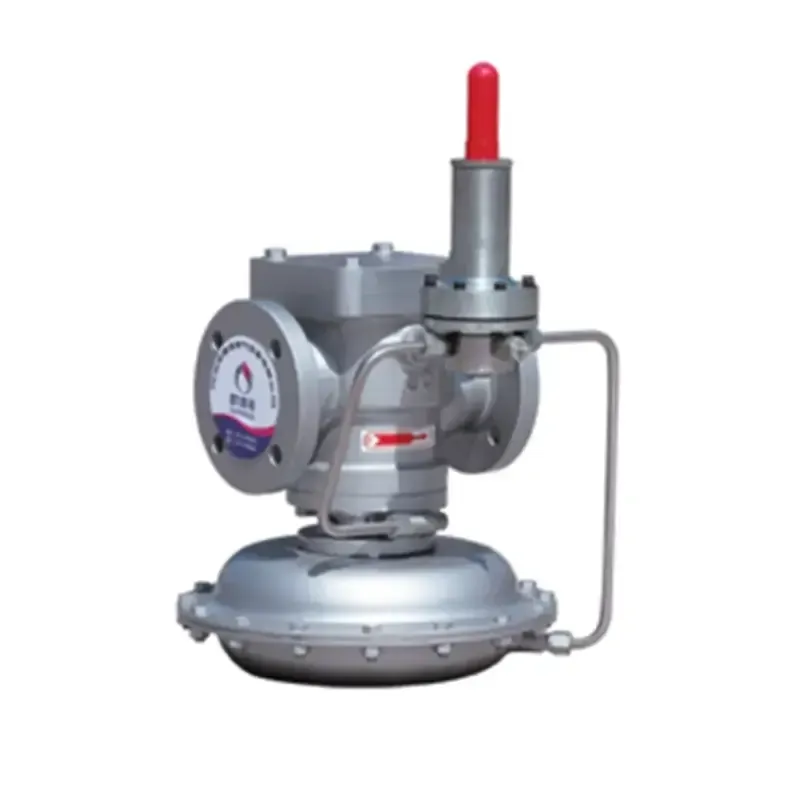
Dec . 19, 2024 14:02
Back to list
Safety Valve Mechanism for Preventing System Failures and Enhancing Operational Security
The Importance of Safety Valves in Industrial Applications
Safety valves play a crucial role in the functioning of various industrial systems, ensuring the safety and wellbeing of both personnel and equipment. These devices are designed to prevent excessive pressure buildup in systems like boilers, pressure vessels, and pipelines. Understanding their importance and functionality is vital for industries that rely on high-pressure operations.
What is a Safety Valve?
At its core, a safety valve is a mechanical device that automatically releases pressure from a system when it exceeds a predetermined threshold. This action prevents potential hazards such as explosions, equipment damage, and catastrophic failures. Safety valves are typically spring-loaded and operate based on the principle of pressure differential. When the internal pressure of a system exceeds the set point, the valve opens, allowing excess pressure to escape until normal conditions are restored.
Types of Safety Valves
There are several types of safety valves, each designed for different applications
1. Spring-Loaded Safety Valves These are the most common and consist of a body, a spring, and a poppet. The spring holds the poppet in place until the pressure exceeds a specific limit.
2. Pilot-Operated Safety Valves These valves use a small pilot valve to control the opening and closing of the main valve. They are typically used in larger systems where precision and reliability are paramount.
.
Applications
صمام الأمان

Safety valves are vital in several industries, including
- Oil and Gas In this industry, safety valves protect drilling rigs and processing facilities. They ensure the safe handling of gases and liquids under high pressure.
- Chemical Processing Chemical plants use safety valves to prevent pressure buildup in reactors and storage tanks, safeguarding workers and the environment.
- Power Generation In power plants, safety valves are essential for boiler systems, preventing dangerous pressure levels that can lead to equipment failure.
- Manufacturing Various manufacturing processes involve pressurized systems, and safety valves help manage risks associated with high-pressure operation.
Importance of Regular Maintenance
Like any mechanical device, safety valves require regular maintenance to function properly. A malfunctioning safety valve can lead to catastrophic consequences, making it essential for industries to implement routine inspections and testing. Maintenance involves checking for leaks, ensuring that the valve opens at the correct pressure, and replacing any worn or damaged components. Furthermore, adhering to industry standards and regulations is crucial to ensure the safety and reliability of these systems.
Conclusion
In conclusion, safety valves are indispensable components of industrial systems where pressure management is critical. They act as the frontline defense against overpressure scenarios, protecting both human lives and equipment from potential disasters. As industries continue to evolve and standards become more stringent, investing in high-quality safety valves and maintaining them diligently is more important than ever. Understanding their function and significance not only enhances operational safety but also contributes to a culture of responsibility and awareness in high-pressure environments. By prioritizing safety valve reliability, industries can ensure a safer working environment and promote sustainable operational practices.
Next:
Latest news
-
Safety Valve Spring-Loaded Design Overpressure ProtectionNewsJul.25,2025
-
Precision Voltage Regulator AC5 Accuracy Grade PerformanceNewsJul.25,2025
-
Natural Gas Pressure Regulating Skid Industrial Pipeline ApplicationsNewsJul.25,2025
-
Natural Gas Filter Stainless Steel Mesh Element DesignNewsJul.25,2025
-
Gas Pressure Regulator Valve Direct-Acting Spring-Loaded DesignNewsJul.25,2025
-
Decompression Equipment Multi-Stage Heat Exchange System DesignNewsJul.25,2025

